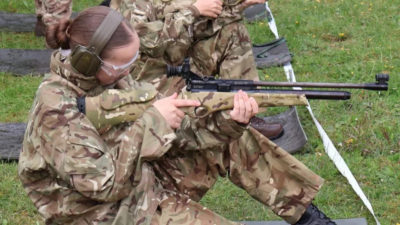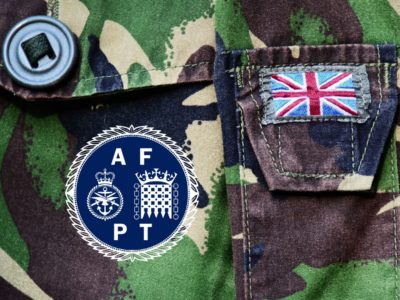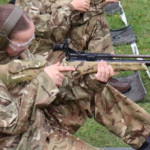Armed Forces Day and other ways of manufacturing consent
ForcesWatch comment
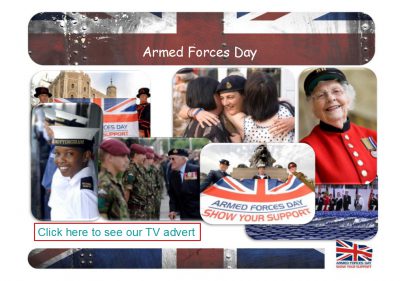
A year ago we wrote how Armed Forces Day symbolises the creep of militarism into our civil institutions. Far from being merely a reflection of public respect, this creep is the result of a concerted effort, which can be tracked through policy initiatives and is fuelled by concern that the military are losing control of the public narrative around defence. We noted how these public displays, which are ostensibly about supporting ‘the men and women who make up the Armed Forces’, (including Camo Day, Reserves Day and the Poppy Appeal), act to market the military as an institution and to build a positive and uncritical narrative around it and support its recruitment needs.
Armed Forces Day itself comes out of the Government report of 2008, National Recognition of our Armed Forces, which sets out to establish a host of ‘countervailing measures’ to shore up support for the forces eroded by recent conflicts.
We noted how these public displays, which are ostensibly about supporting ‘the men and women who make up the Armed Forces’, (including Camo Day, Reserves Day and the Poppy Appeal), act to market the military as an institution and to build a positive and uncritical narrative around it and support its recruitment needs.
A year, and another Armed Forces Day, later, we look here at how militarism continues to creep into schools and colleges and how recent developments further embed military approaches and interests within the education system.
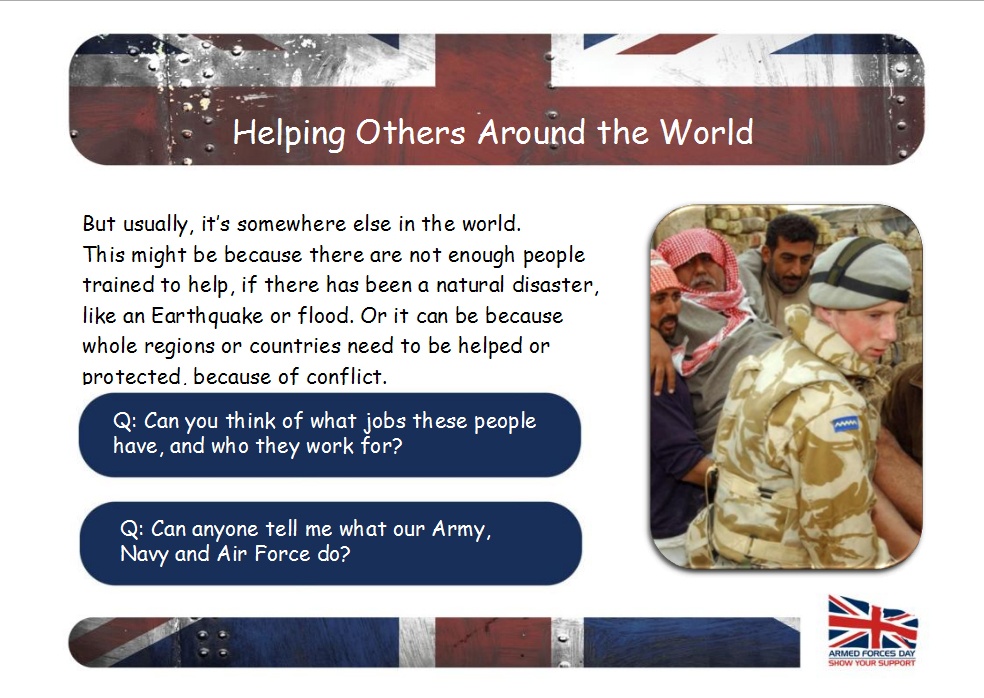
From the Armed Forces Day primary school presentation available on the Armed Forces Day website
War as ‘fun for all the family’
A year ago, we detailed how the Armed Forces Covenant, recognised in law in 2011, and setting out the ‘moral obligation’ between the armed forces, the government and the country, is embedding public support for the military within civilian institutions.
‘In creating a framework for removing disadvantage in housing, healthcare, education, deployment and other areas, the government has also created a mechanism whereby local authorities, business, educational, charities and community organisations are morally obliged to honour the forces. The Armed Forces Community Covenant, while being a ‘voluntary statement’ of support, has been signed by almost every local authority in the UK. Covenants are signed by the council and often numerous partner agencies; the voluntary sector and other local organisations are then encouraged to show support. Many local authorities have appointed an ‘Armed Forces Champion’ or dedicated council officer to oversee services to that one community.’
Many councils now feel obliged to demonstrate the support they have pledged under the Covenant through public displays. In 2014, the local Armed Forces Champion for Wrexham stated that, ‘We have planned an event that has at its core the obligations of the Armed Forces Covenant… In addition to military displays, marches and entertainment there are also numerous veterans associations present that can and indeed do help the needs of ex-forces personnel and their families.’ By default, and in order to get public interest, many of these displays are billed as ‘family fun’ or have an entertainment element. Only a very few of the 200+ events listed on the Armed Forces Day website question the celebratory tone of the day. This year’s event for North Wales (held on 20 June in Colywn Bay) was presented as ‘fun for all the family’ and featured the usual military vehicles and weapons designed to entice young people, and cadet and armed forces careers marketing to recruit them.
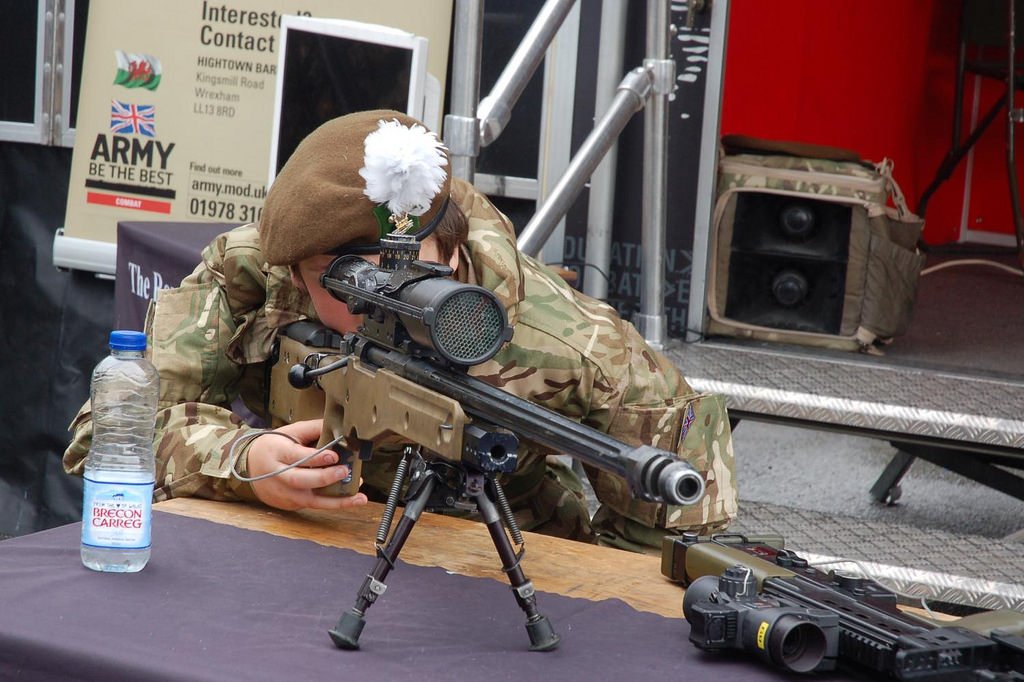
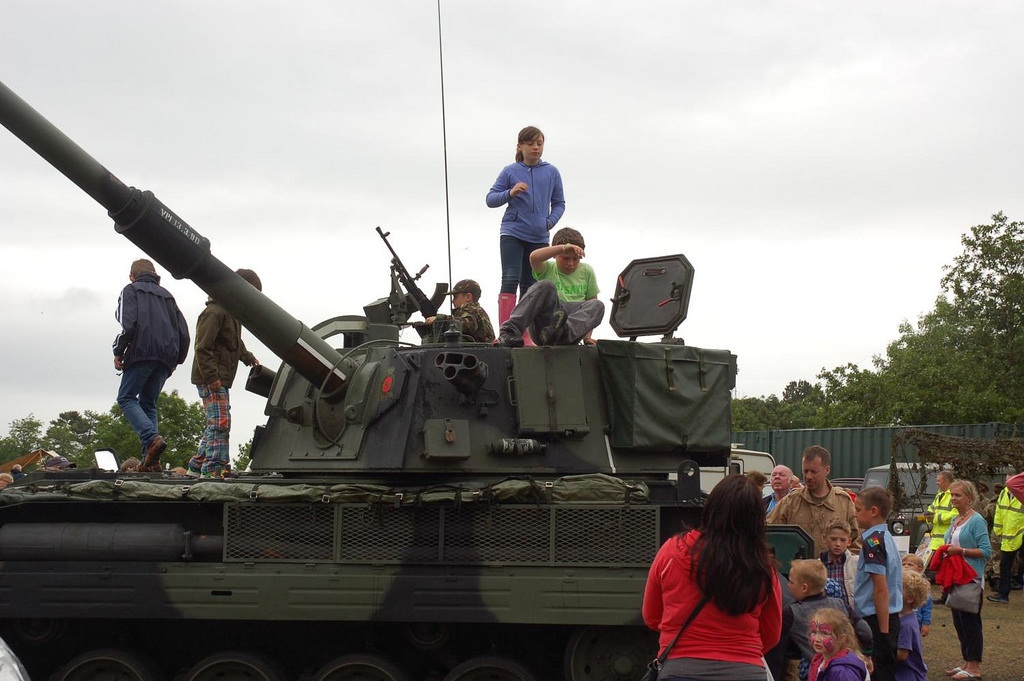
At North Wales Armed Forces Day, 20 June 2015. Photo: Wrexham Peace and Justice Forum
‘Armed forces-friendly’ educational institutions
In addition to the Community Covenant, the Armed Forces Corporate Covenants has now been signed by over 500 companies, charities and other organisations including schools, colleges and the National Association of Head Teachers who, amongst other things, pledge to ‘actively participate in Armed Forces Day’. The Academies Enterprise Trust, the largest multi-sponsor of academies in the UK, has pledged to not only participate in Armed Forces Day, but also to support the government policy of ‘military ethos’ in schools and the Cadet Expansion Programme. Each signing organisation must promote itself as ‘armed forces-friendly’ and advertise this, in addition to a number of measures that more directly support service families.
In another year we could see many more parts of the education system pledge in perpetuity to be ‘armed forces-friendly’ and many more schools embrace ‘military ethos’ activities. As this article explores, the change of government is only likely to entrench these policies, particularly as, with a few exceptions, politicians of all colours are ‘on (pro-military) message’. With the military embedded into parts of the education system and its message promoted by schools themselves, a growing number of young people are coming into contact with this pro-military message in their daily lives. That this is happening within education, which is charged with acting in the best interests of students and developing their critical awareness, is very worrying, particularly when there is strong evidence that it is the youngest recruits, from disadvantaged backgrounds, who are most at risk of being killed or suffering mental health problems through involvement in warfare. How will military involvement in schools and the public celebration of the armed forces, affect the space that young people have for critical thinking about war and its effects and alternatives to armed conflict? Lets take action now and not wait around to find out.
Things to see and do
 Read this article by David Gee on the mental health issues of youth recruitment on Armed Forces Day, June 2015
Read this article by David Gee on the mental health issues of youth recruitment on Armed Forces Day, June 2015
Watch the new short film from Veterans for Peace, Action Man: Battlefield Casualities and join the campaign to end armed forces recruitment at 16.
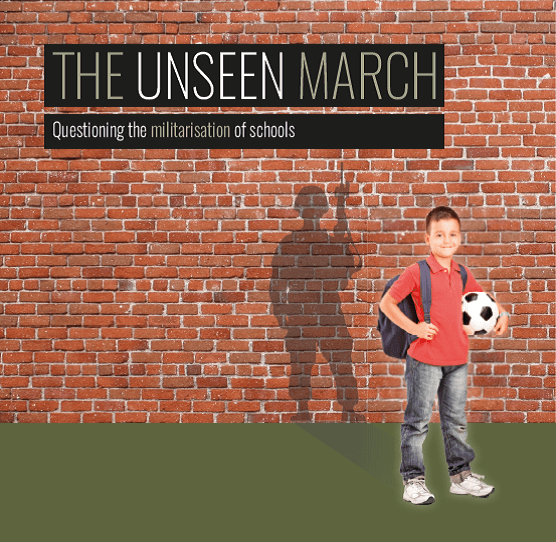 Watch The Unseen March, a new short film made by the Quakers with former paratrooper Ben Griffin, activist Mark Thomas and educationalists speaking out against ‘military ethos’ in schools, read the briefings and actions you can take in response.
Watch The Unseen March, a new short film made by the Quakers with former paratrooper Ben Griffin, activist Mark Thomas and educationalists speaking out against ‘military ethos’ in schools, read the briefings and actions you can take in response.
Sign the petition to stop recruitment of 16 year olds into the armed forces
Read our briefing on Military activities in UK schools and colleges – what are the issues and what you can do
See more: military in schools/colleges, military in society, Armed Forces Day
Like what you read?
> Sign up for our newsletter or blog notifications
> Support our work – from just £2 a month

